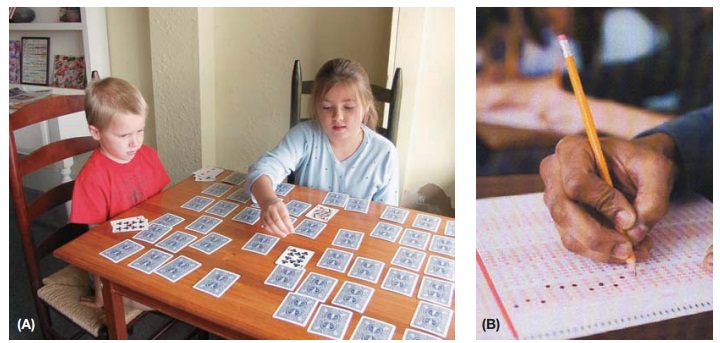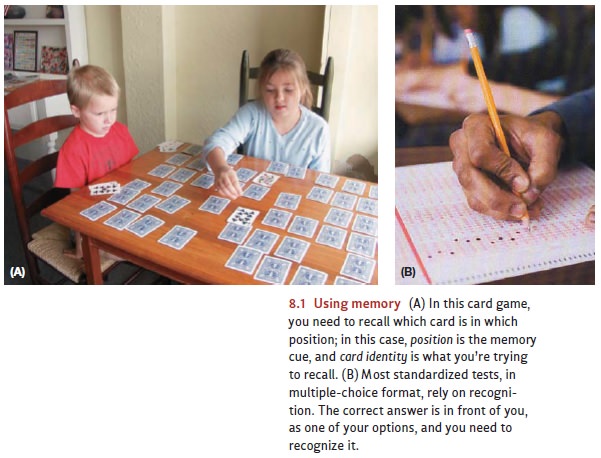Chapter: Psychology: Memory
Acquisition, Storage, Retrieval

ACQUISITION, STORAGE,
RETRIEVAL
Each of us has a huge number of
memories. We can recall what we did yesterday, or last summer. We can remember
what the capital of France is, or what the chemical formula is for water. We
remember how to ride a bicycle and how to throw a baseball. These examples—remembering
episodes, remembering general facts, and remembering skills or procedures—actually draw on different memory systems; but it also
turns outthat the various types of memory have some things in common, so let’s
begin with the common elements.
Any act of remembering requires
success at three aspects of the memory process. First, in order to remember,
you must learn something—that is, you must put some information into your
memory. This point seems obvious, but it deserves emphasis because many
failures of memory are, in fact, failures in this initial stage of acquisition. For example, imag-ine
meeting someone at a party, being told his name, and moments later realizing
that you don’t have a clue what his name is—even though you just heard it! This
common (but embarrassing) experience is probably not the result of ultrarapid
forgetting. Instead, it’s likely to stem from a failure in acquisition. You
were exposed to the name but barely paid attention to it and, as a result,
never learned it in the first place.

The next aspect of remembering is
stor-age. To be remembered, an
experience mustleave some record in the nervous system. This record—known as
the memory trace—is squirreled away and held in some enduring form for later
use. One question to be asked here is how permanent this storage is: Once
information is in storage, does it stay there forever? Or does informa-tion in
storage gradually fade away? We’ll tackle these questions later.
The final aspect of remembering
is retrieval,the process through which you draw information from storage and
use it. Sometimes,retrieval takes the form of recall — a process in which you retrieve information from memory in
response to somecue or question (Figure 8.1A). Trying to answer a question like
“What is Sue’s boyfriend’s name?” or “Can you remember the last time you were
in California?” requires recall. A different way to retrieve information is
through recognition (Figure 8.1B).
In this kind of retrieval, you’re presented with a name, fact, or situation and
are asked if you have encountered it before. “Is this the man you saw at the
bank robbery?” or “Was the movie you saw called Memento?” are questions requiring recognition. Recognition can also
be tested with multiple items: “Which of these pictures shows the man you saw
earlier?” This latter format obviously resembles a multiple-choice exam, and in
fact multiple-choice testing in the classroom probes your ability to recognize
previously learned mate-rial. In contrast, exams that rely on essays or short
answers emphasize recall.
Related Topics